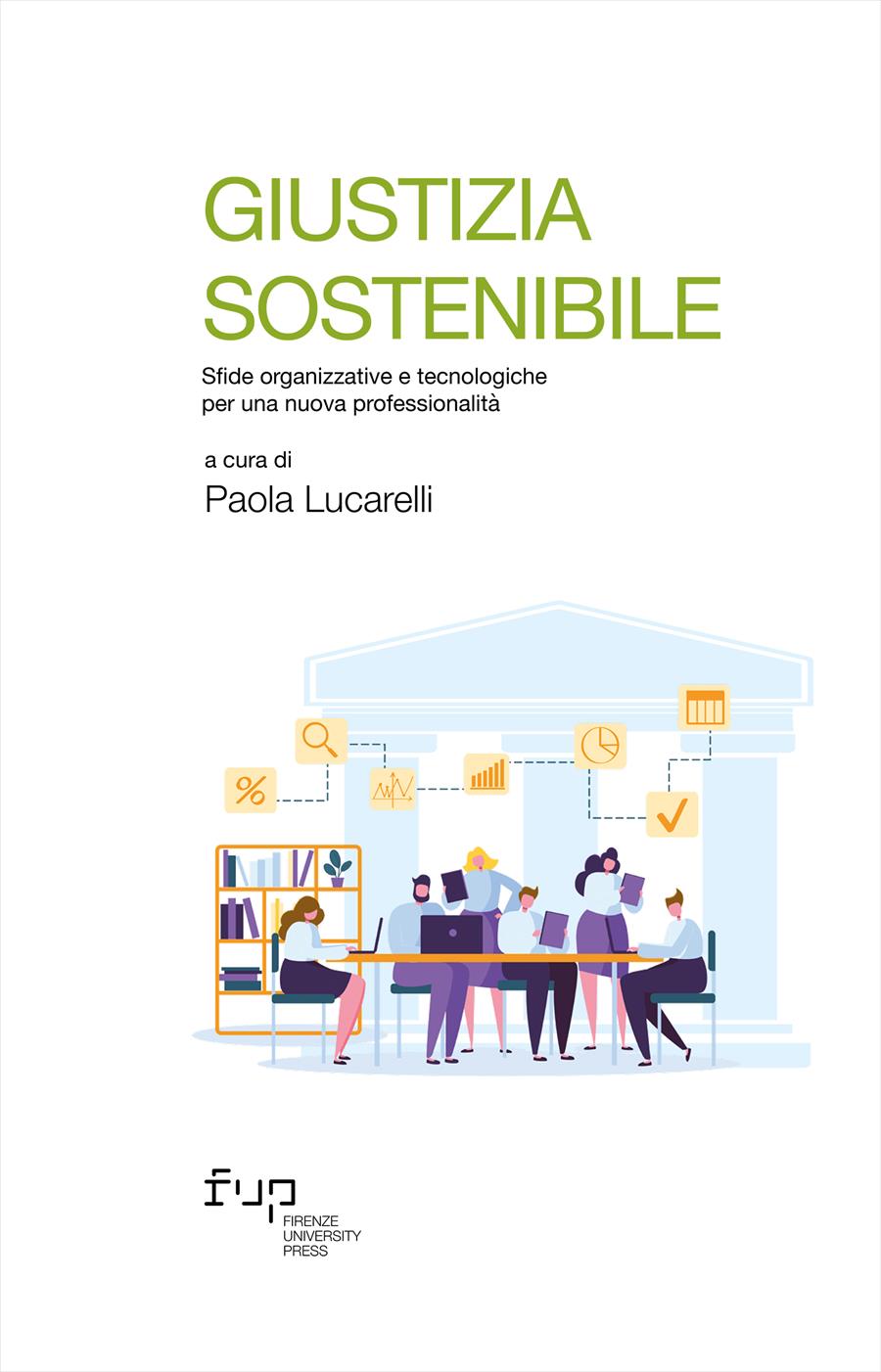- Giustizia sostenibile
- Edited by Paola Lucarelli
Risorse umane e professioni nell’ufficio per il processo
- Annalisa Tonarelli
- © 2023 Author(s) |
- CC BY 4.0
- DOI: 10.36253/979-12-215-0316-6.06
The arrival of clerks to the trial office entails readjustments with respect to the division of labor by questioning the mutual jurisdictions of magistrates and clerical staff, that is, the set of activities that a given profession successfully claims in the division of labor. Drawing on the results of the research conducted as part of the Agile Justice project, the paper highlights the outcomes of this readjustment by enhancing the point of view of the actors directly involved, namely magistrates, administrative staff and clerks. The perspective adopted looks at these professional groups not so much from their prerogatives of role and function, but from the processes of interaction between actors who defend their autonomy and jurisdiction within a dynamic of mutual recognition. Centrality is thus given to what people do in concrete working relationships by looking at the negotiated order within organizations.
- Keywords:
- new professionalities,
- interactions between workers,
University of Florence, Italy - ORCID: 0000-0002-9565-6453
- Abbott, Andriew. 1988. The System of Professions: An Essay on the Division of Espert Labor. Chicago: University of Chicago Press.
- Barber, Bernard. 1963. “Some Problems in the Sociology of the Professions”. Daedalus, 92, 4: 669-688.
- Bechky, Beth A. 2003. “Object Lessons: Workplace Artifacts as Representations of Occupazional Juristdiction”. American Journal of Sociology. 109, 3: 720-752.
- Bourdieu, Pierre. 1986. “La force du droit. Eléments pour une sociolgie du champe juridique”. Actes de la Recherche en Sciences Sociales, 64: 3-19.
- Champy, Florent. 2012. La sociologie des professions. Parigi: Presse Universitaire de France.
- Garapon, Antoin. 2001. Bien juger. Essai sur le rituel judiciaire. Paris: Odil Jacob.
- Gualmini, Elisabetta. 2003. L’amministrazione nelle democrazie contemporanee. Bari: Laterza.
- Hughes, Everett. 1976. “The Social Drama of Work”. Mid-American Review of Sociology 1,1: 1-7.
- Latour, Bruno. La fabrique du droit. Une ethnographie du Conseil d’Etat. Paris: La Decouverte.
- Osborne, David, e Gaebler, Ted, (a cura di). 1992. Reinventing Government. How the Entrepreneurial Spirit Is Transforming the Public Sector. New York: Penguin Books Inc.
- Powell, Walter W., e Di Maggio, Paul .J. (a cura di). 1991. The New Institutionalism in Organizational Analysis. Chicago: The University Chicago Press.
- Strauss, Anselm. 1978. “Social world perspective”. Studies in Symbolic Interaction-Volume 1: 119-128.
- Vigour, Cécile. 2008. “Ethos et légitimité professionnels à l’épreuve d’une approche managériale : le cas de la justice belge”. Sociologie du travail. 50:71-90.
Chapter Information
Chapter Title
Risorse umane e professioni nell’ufficio per il processo
Authors
Annalisa Tonarelli
Language
Italian
DOI
10.36253/979-12-215-0316-6.06
Peer Reviewed
Publication Year
2023
Copyright Information
© 2023 Author(s)
Content License
Metadata License
Bibliographic Information
Book Title
Giustizia sostenibile
Book Subtitle
Sfide organizzative e tecnologiche per una nuova professionalità
Editors
Paola Lucarelli
Peer Reviewed
Number of Pages
270
Publication Year
2023
Copyright Information
© 2023 Author(s)
Content License
Metadata License
Publisher Name
Firenze University Press
DOI
10.36253/979-12-215-0316-6
ISBN Print
979-12-215-0315-9
eISBN (pdf)
979-12-215-0316-6
Series Title
Studi e saggi
Series ISSN
2704-6478
Series E-ISSN
2704-5919
